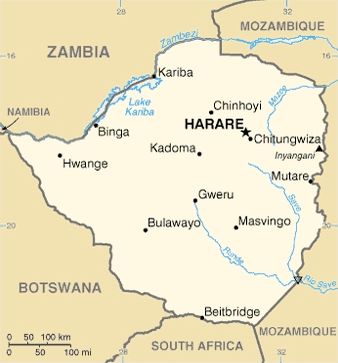JOHANNESBURG, South Africa -- Three weeks after Zimbabwe's historic powersharing agreement was signed in Harare on Sept. 15 by President Robert Mugabe and opposition leaders Morgan Tsvangirai and Arthur Mutambara, the country's national unity government has yet to materialize. The three rivals have failed to resolve a standoff over key cabinet positions, with the opposition accusing the Zimbabwean leader of trying to make it a junior partner in the proposed unity government. According to the deal, brokered by former South African President Thabo Mbeki under the auspices of the Southern African Development Community (SADC), Mugabe's ZANU (PF) party is entitled to 15 cabinet posts, Tsvangirai's MDC 13, and MDC's splinter faction, led by Mutambara, the remaining three. However, the agreement's failure to specify which ministries should go to which party has resulted in the current impasse. According to the opposition, Mugabe wants control of all the key ministries -- including Defense, Home Affairs, Information, Finance and Agriculture -- which form the backbone of the Zimbabwean government. "Mugabe wants to . . . relegate us to just bystanders in the day-to-day running of government," said Nelson Chamisa, spokesman for the larger MDC. "[But] we are supposed to be sharing, not getting chuff from ZANU (PF)." Chamisa called for the SADC and the African Union (AU) to step back in to jump start the stalled process; Thabo Mbeki agreed to resume his mediation late last evening.
Negotiations for Zimbabwe’s Unity Government at an Impasse

